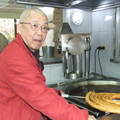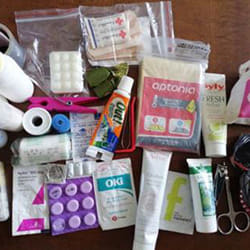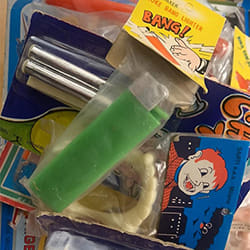
The statue of Velázquez in front of the main entrance to the Prado Museum, covered in snow

This is what it usually looks like.
Filomena finally faded away and fine weather persisted, but the temperature didn’t rise at all and even after five days, the snow was still there on the sidewalks, the ice on the roads hadn’t melted, and distribution networks were still at a standstill. Also known as the City of Seven Hills, Madrid has many sloping cobblestone streets, and such was the increase in the number of accidents involving falls, the elderly were ordered to stay at home. Madrid City Hall also put up an interactive webpage with a map showing in real-time which roads have been de-iced and cleared of snow, and are open to traffic, to help when going out. Looking at this map, I could see how the roads in Madrid, which were extremely cold, some getting down to 10 degrees below freezing, were steadily being cleared of snow. I realized how these people, called essential workers, sometimes put their lives on the line to sustain life in our community, although I was fully aware of that from the COVID-19 pandemic, and once again I was filled with a sense of gratitude and respect.

Map showing the roads cleared of snow:Limpieza Nevada 2021 Experience (arcgis.com)
By the way, in Spanish, low pressure systems, rainstorms, and windstorms are called “borrasca.” Some of those storms, particularly the low pressure systems big enough to impact on people's lives, are named after a person so people can immediately identify them. A group of meteorological agencies from four European countries in the southwest jointly selects 21 male and female names to be used over the year, from October to September of the next year, and use the names alternately. In Japan, typhoons are given a number, and in the United States, hurricanes are given a name.
Southwest European Meteorological Group
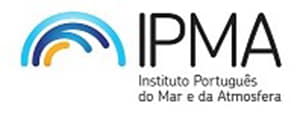
Portuguese Institute of the Sea and the Atmosphere (Instituto Português do Mar e da Atmosfera [IPMA])
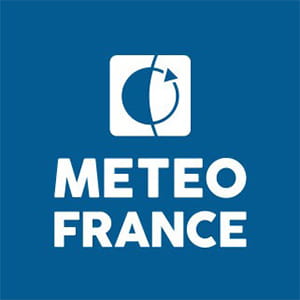
French National Meteorological Service (Météo-France)

Royal Meteorological Institute of Belgium (RMI)

State Meteorological Agency (Agencia Estatal de Meteorología [AEMAT])
The first name used this season was Alex (male), which hit France and was named on October 1, 2020. The next was Barbara (female), a storm in Spain that was named on October 18. The third was Clement (male), in Portugal, named on November 28. Then came Dora (female) in Spain, named on December 3, followed by Ernest (male) in Spain on December 7, and Filomena (female), the low pressure system named on January 5 that brought the heaviest snowfalls to Madrid since 1972.

The list of names used for powerful borrasca (low pressure systems) from October 2020 to September 2021
Although people were facing a difficult situation, the heaviest snowfall in Madrid in 50 years prompted people to have snowball fights on main roads, to ski down the snow-covered steps of the Prado Museum, and to wander around the streets in search of a good story (myself included).
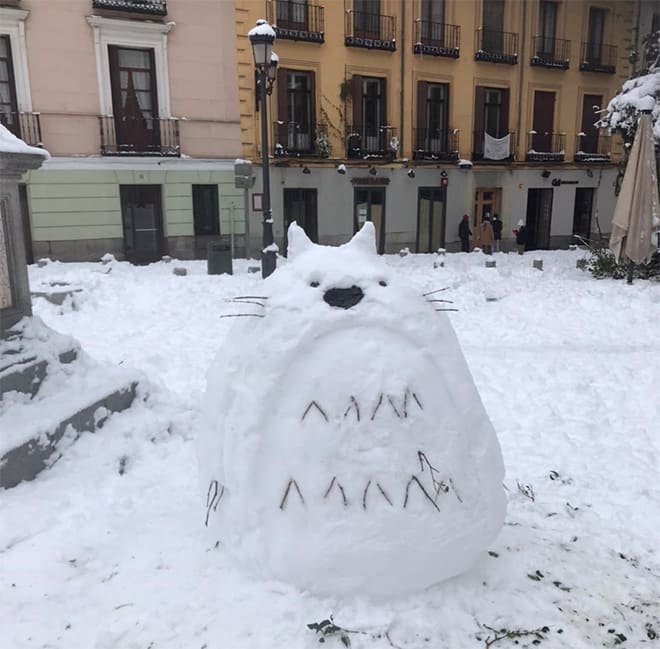
Studio Ghibli is popular in Spain too.

After taking this picture, the official notice for the elderly to stay at home was issued and I was confined to life at home. As one of the elderly, I couldn’t go ahead and become an imposition on the medical institutions, still under pressure, by falling while out for a carefree, unnecessary, and non-urgent stroll in the snow.
P.S. It was at my age that I discovered that the lyrics of a children’s song we used to sing in the old days were in fact ♪ Yuki ya konko ♪ (“Let it snow”), although I had thought they were ♪ Yuki ya konkon♪ (“Heavy snow is falling”). And while I’m at it, I also mistakenly remembered ♪ Donguri korokoro, donburi ko ♪ (“Rolly-polly acorn, goes plop-plop”), as ♪ Donguri korokoro, donguri ko ♪. I am ashamed of myself.









